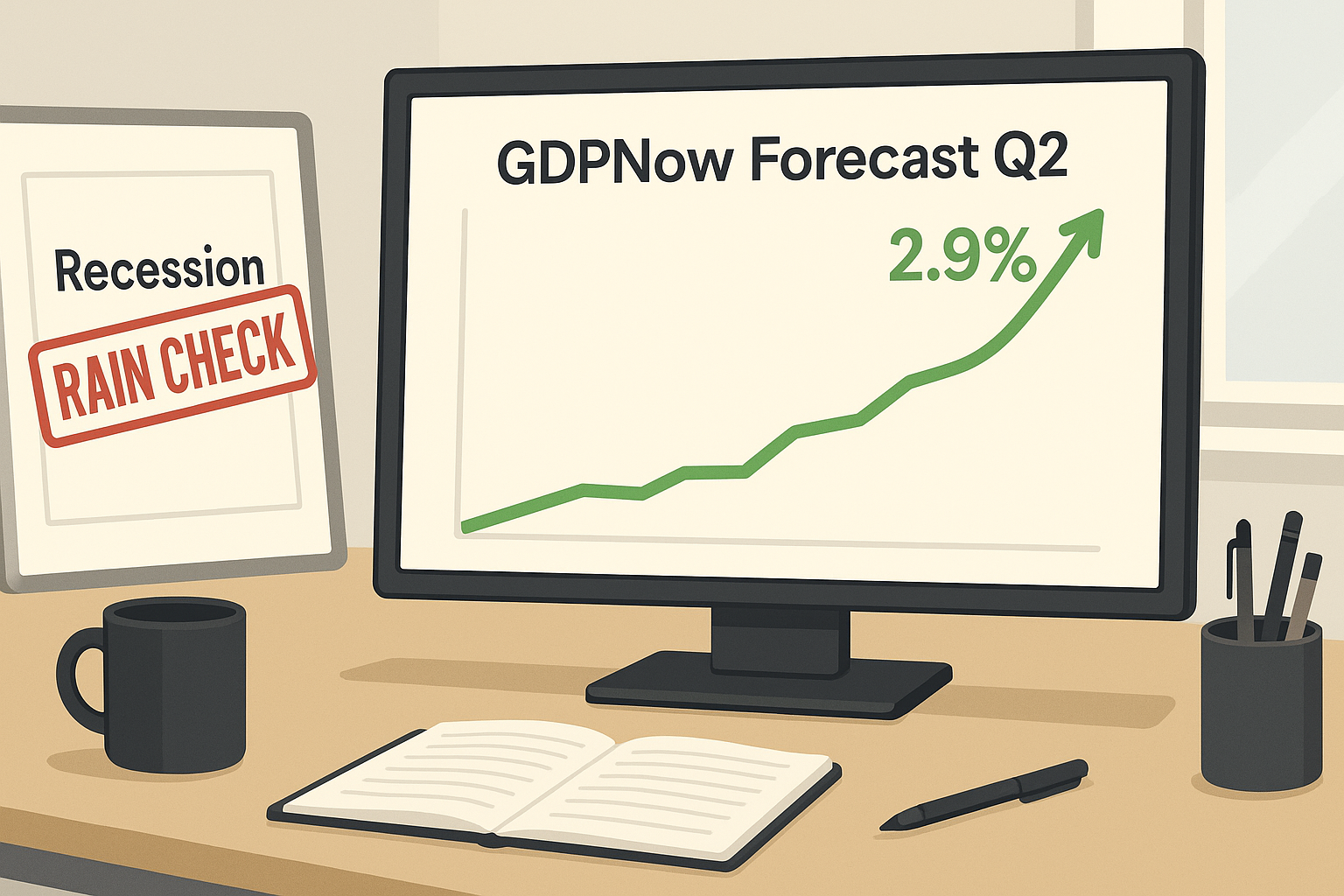The economic doomsayers might need to find a new hobby. Or at least put their recession predictions on ice for a while.
The Atlanta Fed's GDPNow forecast just bumped its second-quarter growth projection to a surprisingly robust 2.9% — up from an already decent 2.4%. Talk about throwing cold water on the recession narrative that's been making the rounds.
It's almost comical, really. For months now, market commentators have been practically tripping over themselves to predict economic catastrophe. You know the type — squinting at yield curves, manufacturing data, and consumer sentiment surveys like fortune tellers examining tea leaves, all while the actual economy stubbornly refuses to cooperate.
I've sat through enough economic briefings (the coffee is always terrible, by the way) to recognize what's happening here. It's what you might call a "recession mirage" effect. When economic indicators come in mixed — as they inevitably do — there's a natural tendency to fixate on the negative signals while dismissing positive ones as "anomalies" or "lagging indicators."
Look, recessions aren't everyday occurrences. They're exceptional events. Yet somehow financial media treats them like they're lurking behind every quarterly report, ready to pounce. This recession hypochondria makes for clickable headlines but lousy economic forecasting.
Let's talk definitions for a second. A technical recession requires two consecutive quarters of negative GDP growth. With Q1 already showing a decline, we'd need Q2 to contract as well. But with growth projected at nearly 3%? That's about as likely as me winning the office March Madness pool. (I picked Georgetown. Don't ask.)
The National Bureau of Economic Research — the folks who officially call recessions — uses broader criteria than just GDP. But even by their standards, it's a tough sell to claim we're in a recession when employers are still creating jobs and shoppers haven't closed their wallets.
This doesn't mean everything's peachy. Inflation remains a genuine pain point (I winced at my grocery bill just yesterday), the Fed keeps hiking rates, and consumers are feeling squeezed from multiple directions. A recession in late 2022 or 2023? Still very possible.
Timing matters enormously in economics — something I've learned covering business cycles since 2008. Markets respond differently to "we're in a recession right now" versus "we might be in one next year." Getting this wrong leads to misallocated resources and potentially harmful policy choices.
There's also the self-fulfilling prophecy angle. When recession talk dominates headlines, businesses delay investments, consumers postpone major purchases, and lenders clutch their pearls. It's economics meets psychology, with a dash of quantum mechanics thrown in — observers influencing the very thing they're observing.
The threats to continued growth aren't imaginary. Trade disruptions could still throw a wrench in things. The Fed isn't done tightening. Inflation continues eating away at purchasing power like termites in a wooden house.
But for now? The recession narrative deserves at least a brief intermission.
The economy shows a resilience that frankly surprised many of us who cover this beat. Not that you'd know it from doom-scrolling financial news.
One thing I've noticed after years of economic reporting: recessions never arrive exactly when or how the consensus expects. The next downturn will probably blindside us in both timing and character. The smart play isn't perfect timing but building enough resilience to weather whatever comes.
For the moment, though? We should be writing about "the recession that wasn't" — at least not yet.
